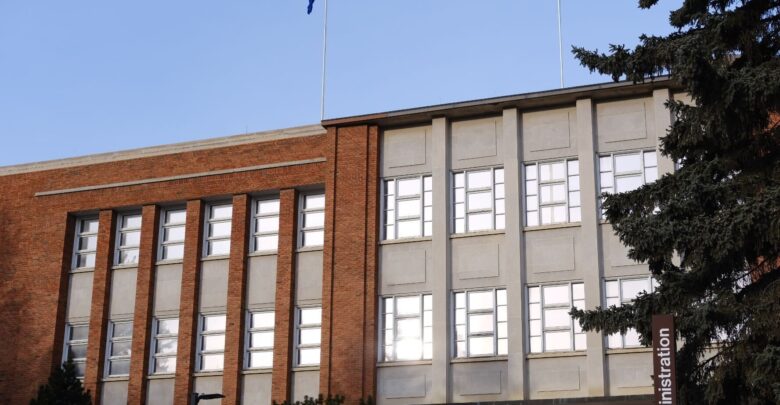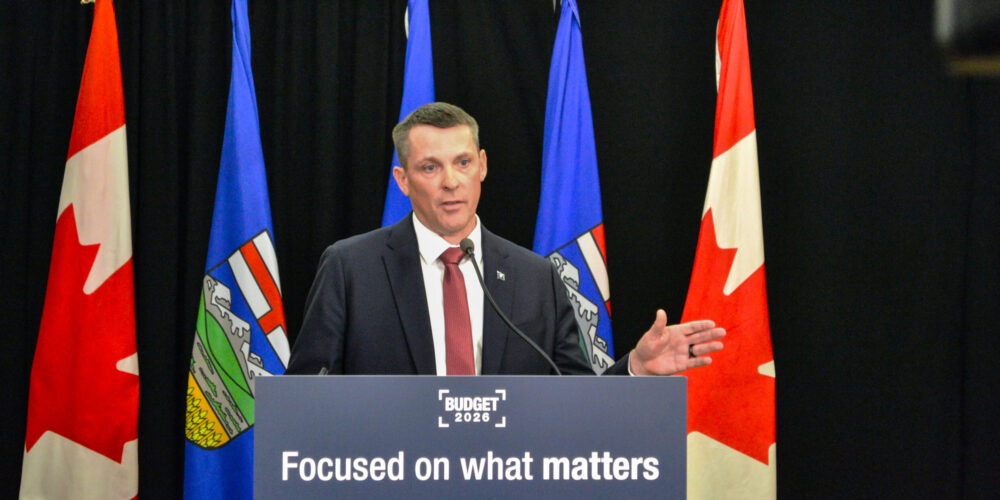Arts Faculty Council passes non-confidence vote in President Flanagan’s leadership
The motion passed with 56 votes in favour, seven against, and six abstentions.
 Macy Wong
Macy WongOn May 23, the University of Alberta Arts Faculty Council (AFC) passed a non-confidence vote on President and Vice-chancellor Bill Flanagan’s leadership.
There were 56 votes in favour of the non-confidence motion, seven against, and six abstentions.
According to Julie Rak, chair of the English and film studies department, Flanagan asked to join the last meeting of the 2023-24 year. He was joined by other members of university administration. The non-confidence motion was added to the agenda after Flanagan left the meeting, and passed because the council did “not have any confidence in him as a leader given how he spoke with us,” Rak said.
On May 23, Flanagan put out a statement about recent community consultations he’s been involved in. He wrote that he’s met with individuals and groups to discuss the university’s decision to have the Edmonton Police Service (EPS) forcefully remove a Palestine solidarity encampment from Main Quad on May 11.
“I deeply regret the harm experienced by our community members as a result of the actions on May 11,” Flanagan wrote.
Rak said that during the meeting, Flanagan “expressed regret for how students were feeling but did not express regret for what he did.” Rak added that Flanagan “emphasized” that EPS was called “because he was afraid of what had happened at The University of California, Los Angeles (UCLA).” A Palestine solidarity encampment at UCLA was attacked by counter-protestors on April 30, and people were left injured.
David Kahane, a professor in the department of political science, put forward the non-confidence motion. He told The Gateway in a written comment that “UCLA is a completely different context,” and that there were no “outside agitators” at the encampment on Main Quad.
Kahane was present at the encampment for all three days, besides a few hours. In the comment, he wrote that there is “no evidence of any major safety threats” that justified calling EPS.
“In fact, never in Edmonton since October have there been organized Zionist counter-demonstrations to any pro-Palestine event or rally. Nor were there any signs of this arising at the [encampment],” Kahane said.
Flanagan should “admit that calling in the police was a grave error, apologize, make amends, and meet the student demands to disclose, divest, defend, and declare,” Kahane wrote.
The Gateway reached out to U of A media relations for comment on the non-confidence vote. Media relations said that “the president continues to focus on the needs of the university community, meeting with key partners including faculty, students and staff.”
“I think there’s a clear feeling that the president of the university has failed in its leadership role,” U of A faculty member says
Jorge Sanchez Perez, an assistant professor in the department of philosophy, spoke at the council meeting about the non-confidence motion.
“I said that to claim that the genocide against Palestinians is a contentious issue is equivalent to saying that climate change is a contentious issue,” Sanchez Perez said in an interview with The Gateway.
The university has previously taken stances in political issues, he said. Sanchez Perez mentioned that the university addressed the Russia-Ukraine conflict “really fast.”
Sanchez Perez said he’s “extremely proud” of all the faculty members who voted in favour of the non-confidence motion.
“I think there’s a clear feeling that the president of the university has failed in [his] leadership role.”
Political science professor hopes vote of non-confidence will discourage Flanagan from seeking another term
Cressida Heyes, a professor in the department of political science, seconded the non-confidence motion. She said Flanagan made several statements since the encampment’s dispersal, none of which Heyes thought justified calling EPS.
According to Heyes, although Flanagan “regretted that people had had traumatic experiences, he still believed that he had made the right decision.”
Heyes said Flanagan’s history as president shows he hasn’t listened to students and professors when making decisions.
“I don’t pretend that all the faculty think the same thing. But I think the majority of the faculty think Flanagan has handled this issue poorly,” Heyes said. Heyes hopes the vote of non-confidence will discourage Flanagan from seeking another presidential term. Flanagan is currently seeking a second-term and is undergoing the presidential review procedure.
“But perhaps more realistically, it will encourage the Board of Governors to consider whether they want to reappoint somebody whose leadership has been so undermined by his own actions.”
Motion was outside of AFC’s powers according to faculty of arts dean and council chair
The Gateway obtained an email sent by faculty of arts Dean Robert Wood to AFC members on May 24. In it, Wood said that during the meeting, as AFC chair, he “conveyed that the motion is outside of the scope of the powers of AFC,” and that the motion “represents an expression of the lack of confidence” in Flanagan’s leadership by the majority of AFC members present for the vote.
Wood wrote that the Office of the General Counsel and Office of the University Secretary confirmed his understanding of the motion in relation to AFC’s powers.
“I have also informed [Flanagan] about this motion and outcome,” the email said.
UPDATE: This article was updated at 4:13 p.m. to reflect new information from an email obtained by The Gateway that was sent by faculty of arts Dean Robert Wood to members of the Arts Faculty Council.




